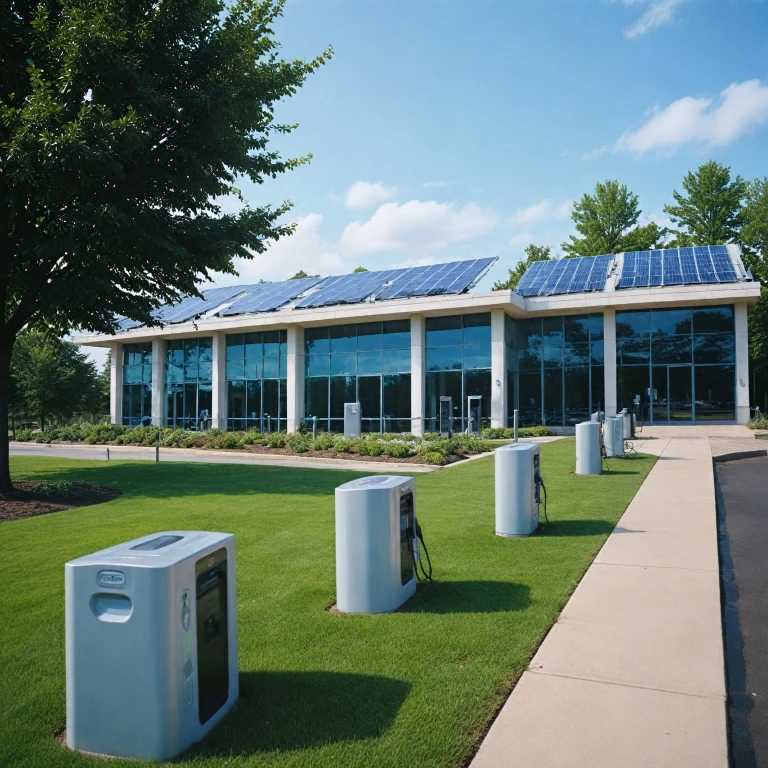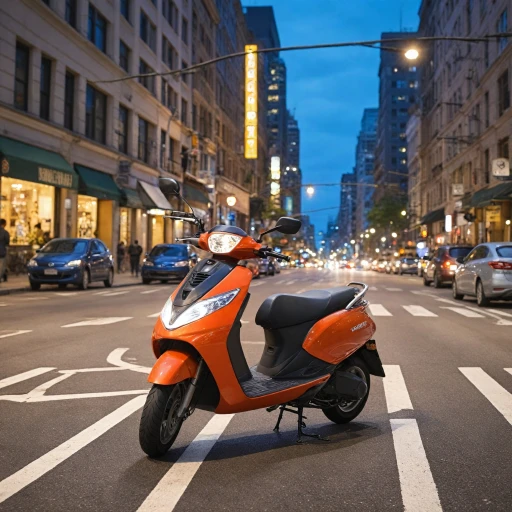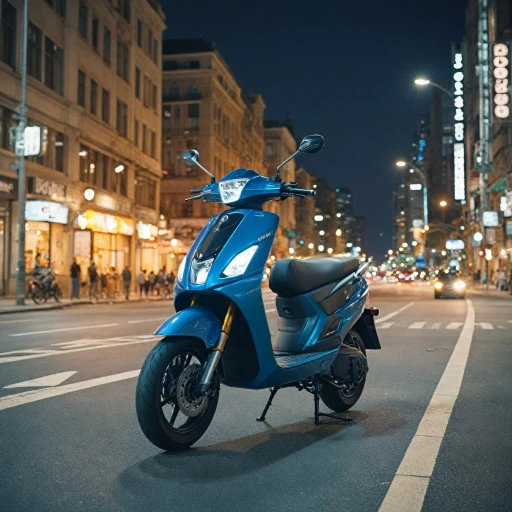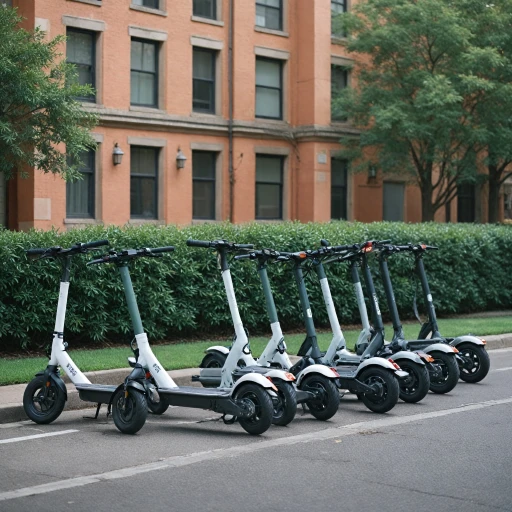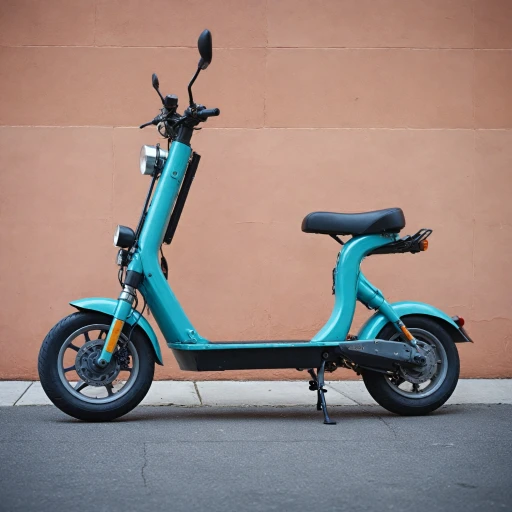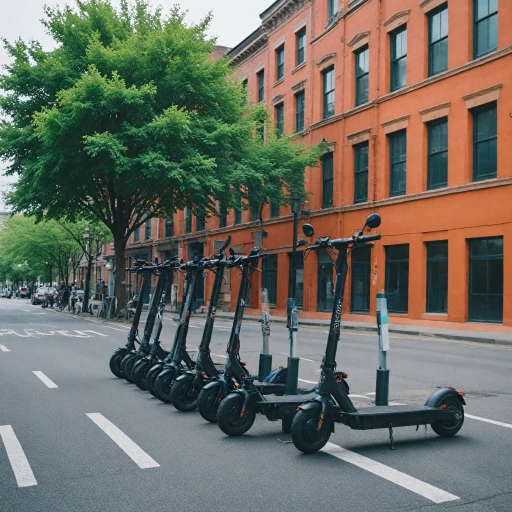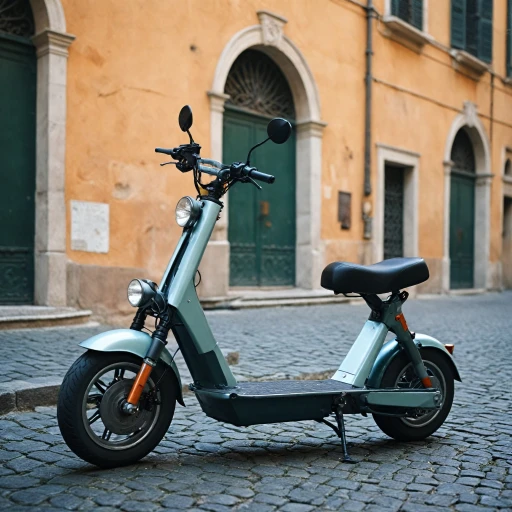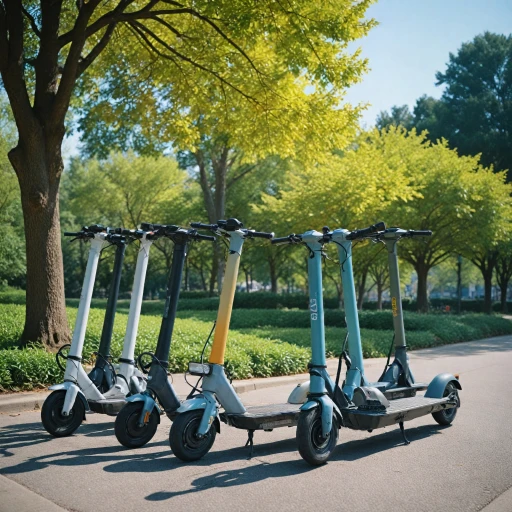
Understanding the Rise of Electric Scooters
Introduction to Electric Scooters
In recent years, electric scooters have zoomed into urban landscapes all over the world, offering a convenient and environmentally friendly mode of transportation. These scooters are not just a trend; they represent a shift in how people think about short-distance travel. The adoption rate has been impressive, driven by factors such as urban congestion, environmental consciousness, and their practicality for last-mile connectivity.
Why Electric Scooters are Advantageous
- Eco-Friendly Transport: They produce zero emissions, lowering the carbon footprint and contributing to less polluted cities.
- Cost-Effective: With no need for gasoline and minimal maintenance costs, users save significantly over time.
- Easy Navigation: Ideal for avoiding traffic snafus and traveling through congested areas.
- Simplicity: Easy to ride, making them accessible to a broad range of people.
Infrastructure Support Needs
As electric scooters gain popularity, the demand for adequate charging infrastructure continues to rise. Ensuring there are sufficient charging stations in strategic locations is crucial. Virginia is actively exploring solutions to meet this demand by incorporating more charging stations in hubs where foot traffic is high. The support doesn’t just benefit scooter users; it boosts commercial properties, attracting customers and increasing footfall.
For more information on choosing an affordable electric scooter, visit our guide on finding the perfect affordable electric scooter.
Infrastructure Needs for Electric Scooters
Infrastructure Essentials for Electric Scooters
As electric scooters gain popularity, understanding their infrastructure needs becomes crucial to support their growth effectively. The infrastructure for electric scooters involves more than just the vehicles themselves; it encompasses charging stations, energy support, and efficient installations to ensure seamless operations.
Electric scooters, like any other electric vehicle (EV), require accessible charging stations. Virginia's commitment to promoting electric infrastructure can be seen in its support for installing charging solutions in commercial properties. A well-planned charging infrastructure not only enhances user experience but also encourages more consumers to switch to electric transportation.
- Charging Station Availability: The presence of strategically located charging stations is vital. These stations ensure that electric scooter users have easy access to charging points, particularly in high-traffic areas and along popular scooter routes.
- Charger Types: Offering a variety of charger types, such as fast chargers and level chargers, caters to the diverse needs of electric scooter riders. Fast charging options, in particular, significantly reduce waiting times, making electric vehicles convenient for daily use.
- Consideration for Commercial Properties: Businesses in Virginia can benefit from integrating EV charging stations into their infrastructure. This not only bolsters their sustainable image but also attracts customers looking for charging options while they shop or dine.
- Support from Dominion Energy: Entities such as Dominion Energy play a role in supporting the development of charging infrastructure. Their involvement can help facilitate the installation process and provide necessary resources.
On the regulatory front, understanding policy considerations is critical to the growth of EV infrastructure. Policies concerning charger installation, energy rates, and tax credits can significantly influence the expansion of charging solutions in commercial spaces. By focusing on these factors, Virginia can enhance its electric vehicle ecosystem and cater to the increasing demand for efficient electric scooters.
EV Charging Solutions for Commercial Properties
EV Charging Solutions and Infrastructure Implementation
Commercial properties in Virginia, like in many other regions, are increasingly recognizing the need for robust charging solutions as the popularity of electric vehicles (EVs) grows. With this rising demand, investing in a comprehensive charging infrastructure on commercial properties not only serves current and potential customers but also positions businesses as leaders in sustainability.- Assessing Location Needs: It is essential for businesses to analyze the charging requirements specific to their location. Factors like the typical duration of customer visits and common vehicle types—such as electric scooters or cars—should influence the choice of chargers, ranging from level chargers for slow, overnight charging, to fast chargers for a quick top-up.
- Types of Chargers: Implementing a mix of charging stations can cater to varied EV needs. Level chargers are suitable for long-stay customers, while fast charging stations serve those on tight schedules. Offering a range of options can ensure that both slow and fast charging needs are met effectively.
- Collaboration with Utility Providers: Partnering with utility companies, such as Dominion Energy, can aid in proper planning and execution of the charging station installation. Their expertise can be valuable in identifying optimal placement and integration into existing energy systems, ensuring efficiency and reliability.
- Incentives and Tax Credits: Virginia offers tax credits and rebates that can offset the costs related to installing these crucial infrastructures. Taking advantage of these incentives can make the transition to providing electric vehicle charging solutions more financially palpable for businesses.
Regulatory and Policy Considerations
Navigating Regulations and Policies for Electric Scooters in Virginia
Navigating the regulatory framework surrounding electric scooters in Virginia is an essential step for businesses aiming to establish or expand their commercial charging solutions. With the rising popularity of electric vehicles (EVs), including electric scooters, it's crucial to understand the legal landscape impacting infrastructure development and charger installation. One primary consideration is the installation of charging stations in commercial properties. Local regulations often specify requirements for charger installations, including the location of charging station, safety standards, and the type of chargers suitable for public or private use. Businesses should be aware of the zoning laws and permits required for integrating charging infrastructure in cities like Arlington County.Tax Incentives and Credits
Virginia offers several tax credits and financial incentives for businesses looking to invest in EV charging infrastructure. Tax credits are available for both the installation of level and fast chargers, encouraging commercial properties to provide sustainable charging solutions. The involvement of local utility companies, such as Dominion Energy, further supports the development of commercial charging stations through partnerships and rebates.Importance of Compliance
Compliance with state and federal regulations is not only a legal necessity but also a strategic advantage for businesses. Adhering to standards ensures that the installation and operation of charging stations align with safety and efficiency requirements, which can enhance consumer trust and attract more customers. Furthermore, businesses should stay updated on policy shifts, as the electric vehicle landscape is rapidly evolving. Engaging with local government agencies and industry groups can provide valuable insights into upcoming regulations that may impact charging solutions and infrastructure needs. Ultimately, understanding and navigating these regulatory and policy considerations will help businesses optimize their charging infrastructure, cater to the increasing demand for electric scooters, and pave the way for a sustainable transportation future in Virginia.Case Studies: Successful Implementations
Successful Deployments in Virginia
In Virginia, the integration of EV charging solutions within commercial properties showcases a promising direction. One notable area is Arlington County, where business owners have embraced electric vehicle chargers as part of a broader push towards sustainable infrastructure. Establishments across the county have seen an uptick in customer engagement as a result of installing charging stations. These installations not only cater to EV owners but also offer a competitive edge in appealing to environmentally conscious clientele. Fast charging solutions, and level 2 chargers play significant roles here, providing enhanced service experiences for customers who prioritize efficiency and time savings. Commercial properties adopting charging infrastructures, especially those designed for fast chargers, benefit economically too. With options like tax credits and partnerships with energy providers like Dominion Energy, the financial implications of setting up these systems become more manageable. Stores, restaurants, and offices find an increase in foot traffic directly correlated with the availability of convenient vehicle charging options.Impact of Infrastructure on Environment and Business
The infrastructural advancement in places like Arlington sets a benchmark for broader implementation throughout Virginia. As a result, the reduction in carbon emissions becomes a shared value, positively affecting both urban environments and business reputations. By providing efficient energy solutions and high-quality service, commercial properties can align with environmental goals, meeting the requirements that modern customers demand. The ripple effect is evident as these infrastructures attract more electric vehicles into urban areas, encouraging further development of charging solutions, meeting government regulatory goals, and promoting sustainable urban living. Business owners who adopt these changes not only enhance their service offerings but also contribute to a sustainable future, thus gaining customer trust and loyalty. Thus, successful implementations integrate customer service with environmental responsibility, resulting in profitable and sustainable business operations.Future Trends and Innovations
Embracing Future Prospects with Electric Scooters
The landscape of electric scooters is evolving swiftly, driven by technological advancements and increasing consumer demand. This evolution not only enhances the user experience but also accelerates the integration of these eco-friendly vehicles into the urban transportation network, particularly in places like Virginia.
Technological Innovations: One of the most notable trends is the development of more efficient batteries, enabling longer distances per charge. Companies are focusing on lithium-ion batteries that promise greater longevity and faster charging capabilities, which align perfectly with the needs of commercial properties investing in electric charging stations. Fast chargers and level chargers are becoming more prevalent, satisfying the need for quick turnarounds for customers and employees alike.
Energy Solutions and Fast Charging: Businesses are increasingly seeking energy-efficient solutions, including fast charging stations that cater to both electric vehicles and scooters. Dominion Energy is actively supporting such installations, providing expertise and necessary infrastructure to facilitate this transition. The shift towards level chargers represents a significant move towards sustainability, reducing carbon footprints and operational costs.
Government Incentives: The role of governmental bodies is pivotal in this transformation, with various tax credits available to commercial properties investing in charger installation. The added incentive encourages more businesses to consider investing in this area, prompting a broader acceptance and accessibility of electric scooters.
Public Acceptance and Infrastructure: As electric scooters gain popularity, the need for robust charging infrastructure is apparent. Arlington County, for instance, has recognized this trend and is proactively working on expanding its network of charging stations. Commercial properties across Virginia are encouraged to collaborate with energy providers and governmental bodies to ensure their charging solutions are future-proof.
The future of electric scooters looks promising, with enhanced technology and solid infrastructure paving the way for even broader adoption. Businesses that position themselves to harness these advancements are likely to see substantial benefits in both operational efficiency and environmental impact.

